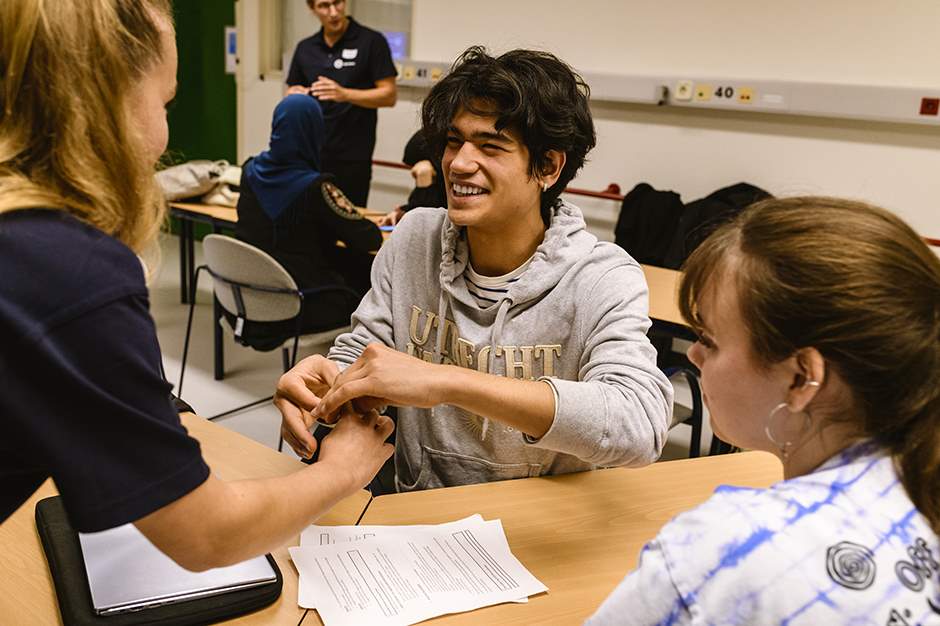Environment: the impact of our education on a healthier world
Our students and healthcare professionals in training are acting more than ever for sustainability and our impact on the environment. Yet, together with other healthcare organizations, we are responsible for 7% of all the CO2 that is released into the atmosphere in the Netherlands. Our students and healthcare professionals in training are curious to know how we focus in our education on the health of people and of the earth, in other words Planetary Health. In line with The New Utrecht School, we find this a very important topic and have made it a, important part of our education and training programs.

At UMC Utrecht, we make Planetary Health an important part of all our courses. We train professionals of the future to work in a new way that will contribute to more sustainable healthcare and a more sustainable society. We are raising awareness and offer a framework for action to work together on solutions. Our special Planetary Health Integration Team (PHIT 2.0) takes the lead in this regard. The team includes lecturers and other colleagues from (nearly) all courses. The team works extensively with students and the CO2 assistant . They also participate actively in making education, healthcare, and research throughout the Netherlands and abroad more sustainable.
The Planetary Health Integration Team grew in 2024 from 3 to 10 members, with representatives from all academic programs in the Faculty.
New education for sustainable healthcare and research
Our Planetary Health Integration Team in 2024 put together an e-learning course on ‘Planetary Health, what it means for me as a (future) healthcare professional’. As well as two e-modules on sustainability and fair research. We decided to share these e-learning courses with all healthcare and research professionals in the Netherlands. In 2024, some 350 professionals followed the e-learning course. The team now ensures that the modules are included in education. For example through an event with students and lecturers of the Master’s program in Clinical Health Sciences, ‘Social responsibility in research: how do you tackle it?’ They also made a mini-podcast on how someone can make responsible choices as a researcher. Listen to the podcast on Spotify .
In addition, Planetary Health and sustainability now also form part of two of our courses for medical support professions. Healthcare professionals in training learn here how they can contribute to more sustainable care in their daily practice. The Planetary Health Integration Team is working on making Planetary Health and sustainability a part of all healthcare and research training courses at UMC Utrecht.
Help make healthcare and research sustainable in the Netherlands and abroad
Our team also helps to make healthcare and research sustainable throughout the Netherlands and abroad. In 2024, a team member wrote an article on making research sustainable in the well-known journal Nature . And, together with professionals from other UMCs, our team drew up a countrywide vision paper to integrate Planetary Health in healthcare curricula in the Netherlands. Our team also drew up a guideline for Socially Responsible Research . This will help (future) researchers to set up, perform, and disseminate their (bio)medical research in a socially responsible way. Members of the team also spoke at various national and international events. In addition, they held a workshop on ‘Guidelines for doing socially responsible research’ at the Groene Zorg (Green Healthcare) Festival in Amersfoort.
